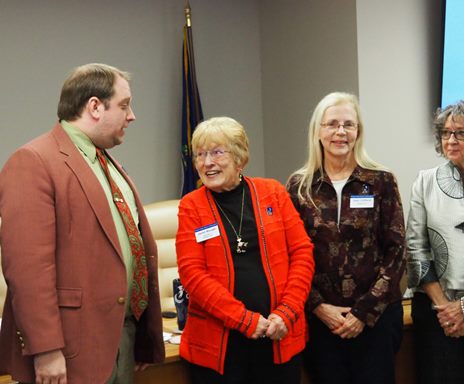Should cameras be placed in Kansas City, Kansas, Public Schools classrooms?
That will be the topic of forums to be held on Saturday, Dec. 17.
The public is invited to weigh in on the topic during the forums.
Superintendent Anna Stubblefield said during the Dec. 13 school board meeting that two public forums are planned.
Those interested in participating in the forums must register for a forum at a link at kckschools.org.
The time of the in-person forum Saturday, Dec. 17, is 10 a.m. to noon at the school district office, 2010 N. 59th St., Kansas City, Kansas.
Then there will be a virtual forum from 1 p.m. to 3 p.m. Saturday, Dec. 17. Registration also is necessary for this forum.
The district has already held a forum for staff members on Dec. 7.
The school board is not expected to make a decision on cameras in the classroom on Saturday.
The topic has generated interest among faculty, parents and students in the school district.
At the Dec. 13 school board meeting, a community comment was received from Craig Krueger on the topic.
An educator and parent, Krueger said $8 million would be required to fund classroom cameras, and he thought it might be better spent on other approaches. As an alternate approach he suggested still designs for classroom cameras, from $200 to $300 each, that faculty could use in partnership with the instructional coaching staff. There would still be an opportunity to be reflective practitioners by using a video of themselves in the classroom.
He suggested using a portion of the funds for student safety needs, after using grant funds and instructional materials for 1,600 classrooms. He felt an alarm system or mobile panic button might better meet the needs of staff members for safety.
According to information posted on the school district’s website, the focus of the discussion on cameras in the classroom shifted from surveillance to leveraging the use of cameras for instruction to address the teacher shortage. In 2021, the district bought 388 cameras for $69,452 for distance learning.
Already, the school district has 2,777 cameras in the schools and district offices, according to the district’s website. They are in various places, including gymnasiums, auditoriums and multipurpose areas.
Cameras are being used for unfilled teaching positions, and long-term substitutions.
The district stated on its website that the cost of the camera project is $6.7 million to buy and install them. Federal ESSER funds are available for the project.
According to the district’s website, the district reviews camera footage when an incident is reported. However, there is no plan for a command center to monitor cameras, according to information on the website.

